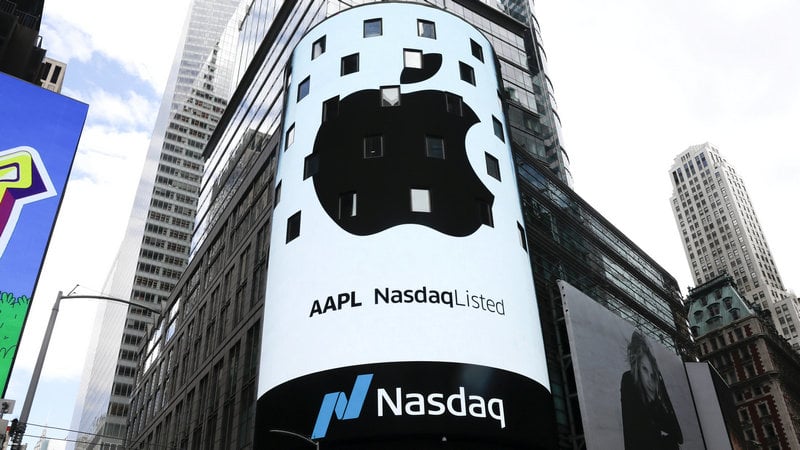The short-term price of AAPL isn’t that big of a deal to Apple’s strategy because Apple isn’t reliant on the equity markets to fund their operations. However, from a long-term view it matters because the CEO reports to the shareholders. Tim Cook can say that he isn’t interested in profits all he wants but at the end of the day that is where he’s judged.
As long as Apple stock is doing well, the shareholders will let him say whatever feel-good platitudes he wants. But if AAPL tanks long-term, we’ll see just how much power Tim Cook really has.
In any matter, since Apple is flush with cash it’ll be business as usual for now. The price of the stock is simply Wall Street’s assessment of how they believe the future looks. And they’re not privy to Apple’s future plans.
January 16, 2016
The price of AAPL has taken quite a beating lately. But does Apple’s stock price meltdown matter to the troops on the ground at Apple’s headquarters?
It does and it doesn’t.
Tim Cook and his management team ultimately report to the board of directors. And the board represents the shareholders, so it does matter. However, considering that sales are at record highs and their profitability margins are the envy of the world, the management team isn’t too worried about the stock price affecting their jobs. They are doing their part and meeting their quarterly goals. I would compare Tim Cook’s status to an NFL football coach who’s just won the Super Bowl…again. He’s not too worried about getting fired.
That’s not to say that the stock market meltdown of 2016 isn’t going to be without grave consequences. There are a myriad of companies out there with debt covenants with banks who’ve put up their stock equity as collateral. If the value of their stock gets below a certain agreed-upon point, that debt immediately becomes payable. A good number of those companies will go bankrupt and thus begins a vicious cycle. As Doc Brown once said, “It could cause a chain reaction that would unravel the very fabric of the space-time continuum”. So let’s hope the stock market doesn’t continue on it steep downward trajectory. But I digress.
Apple Equity Is in Transition
The whole concept of “Blue Chip” stocks exists because the world needs steady dependable companies that you can put your money into and not worry too much about risk. Wall Street refers to these investments as Value Stocks. So why invest in a value stock as opposed to putting your money in the bank? Because you’ll get more of a return from the stock appreciation and dividends than you will from the bank interest. These large, blue-chip companies will have solid revenue streams and astute management. Sounds like Apple right? Well, it would except for one thing.
Apple fits the blue-chip profile except for the fact that their revenue growth more closely resembles a young high-growth company. They’ve continued to grow more like a startup than a mature Exxon or General Electric. Investment managers of growth stock funds want to ride the Apple elevator all the way up and get off on the top floor. The problem is that nobody knows where the top floor is. And those still on the elevator when it tops out are going to be in for a free fall before the stock settles in at its mature value. Hence, the jitters and panic.
But it’s not the end of Apple’s world when that inevitably happens. When it becomes obvious that iPhone volumes have settled and the high-growth fund managers have completely left the building, a whole new crowd will step in. Risk-averse pension- and value-fund managers will happily snap up Apple stock. A steady, profitable business and quarterly dividends like clockwork will be their nirvana. Their primary motivation is finding safe harbors where they can place cash without worrying about loss and staying ahead of inflation.
Apple will be like a company under new ownership. Many will disagree, but I think this will be a positive development for Apple, activist investors notwithstanding. With the events of the past few weeks, it’s estimated that Apple ownership by growth funds has just dipped below 50%. So even now people are already banking that Apple has reached the top floor.
So the change in ownership of AAPL means about as much to Tim Cook as your bank selling your mortgage. It doesn’t matter who owns the paper as long as you're holding up your end of the bargain and making your monthly payment.



 RSS Feed
RSS Feed